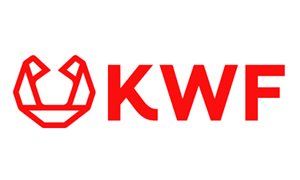 Tagworks Pharmaceuticals, based at Radboud university medical center, has developed a new technique for the targeted delivery of chemotherapy for tumors in cases where this was previously very difficult. By way of the controlled ‘click-to-release’ of the chemotherapy drug from its tumor-binding carrier, the chemotherapy can be activated at the right location. The company is publishing the results of studies in mice that have been treated with this method in Nature Communications.
Tagworks Pharmaceuticals, based at Radboud university medical center, has developed a new technique for the targeted delivery of chemotherapy for tumors in cases where this was previously very difficult. By way of the controlled ‘click-to-release’ of the chemotherapy drug from its tumor-binding carrier, the chemotherapy can be activated at the right location. The company is publishing the results of studies in mice that have been treated with this method in Nature Communications.
ADCs are currently already used for the treatment of lymphoma and metastatic breast cancer. “These ADCs work very well,” says Marc Robillard of Tagworks Pharmaceuticals, a company based at Radboud university medical center. “But for many other tumors, including colon cancer and ovarian cancer, this method is not yet applicable. The problem is that there are not many suitable cancer-specific receptors that automatically drag such an ADC into the cell, and if the ADC gets stuck on the outside, the chemotherapy drug will not be released and therefore can’t do its job.”
Chemotherapy drug released
It is vital to ensure that the chemotherapy drug is also released if the ADC remains on the outside of the tumor cells. To achieve this objective, Tagworks has designed a smart variant of the ADCs. The ADC is injected and then binds to the receptors on the tumor cells. After a day or two, the tumor is filled with these ADCs. So far, this is nothing new. Robillard: “Our innovation is that we inject a second component that ‘click-releases’ the chemotherapy drug from the ADC. As a result, a large quantity of chemotherapy is released very quickly, attacking the tumor. This method will hopefully enable us to treat many more types of cancer.”
Effective in mice
The first results of this new ‘click-to-release’ method in mice have now been published in Nature Communications. Robillard: “We studied ovarian cancer and an aggressive form of colon cancer. In both cases we observed a pronounced anticancer effect. For control purposes, we also applied a ‘traditional’ ADC, i.e., without the second component that causes the chemotherapy drug to release, but this approach had no therapeutic effect in these forms of cancer.”
Cooperation
In Nijmegen, Tagworks collaborates with a variety of research groups, Technology Centers and Research Facilities, which have been specifically set up for cooperation with the business community, including the Radboudumc Technology Center for Mass Spectrometry. In addition, Tagworks cooperates with specialized small and medium-sized enterprises that are also co-authors of the publication. According to Robillard, this illustrates the importance of cooperation. “Developing new drugs for cancer is very complex and requires the expertise of specialists. No party can do this by itself. I believe this result is a fine example of how you can maximize the innovative power of small and medium-sized businesses by joining forces and connecting with the advanced facilities and high-quality knowledge of institutions such as Radboud university medical center and Radboud University.”
-
Want to know more about these subjects? Click on the buttons below for more news.
More information
Pieter Lomans

persvoorlichter
Related news items

Tackling cancer with radioactive particles
2 September 2021 Professor Sandra Heskamp receives grant for research into cancer treatment with radioactivity read more
Young people with colorectal cancer deserve their own treatment
27 July 2021 Richarda de Voer and Marjolijn Ligtenberg's study on clinical, pathological, genetic and molecular characteristics of colorectal tumors in adolescents and adults 25 years of age or younger is published in Clinical Gastroenterology and Hepatology. read more
VIDI grants for researchers of Radboud university medical center
14 July 2021 Several Radboudumc researchers have been awarded a VIDI grant by the Dutch Organisation for Scientific Research (NWO). They each receive a sum of 800,000 euros, which they will use over the next five years to develop their own innovative line of research and to set up a research group. read more
New culture method reveals how cancer cells bypass immune system
5 July 2021Publication in Cancer Immunology Research
read more
2.5 million Euros for cancer research into ovarian cancer and immunotherapy
15 April 2021 The Radboudumc receives 2.5 million Euros from the Dutch Cancer Society (KWF) for three studies to ensure oncological progress during COVID-19 period. read more
